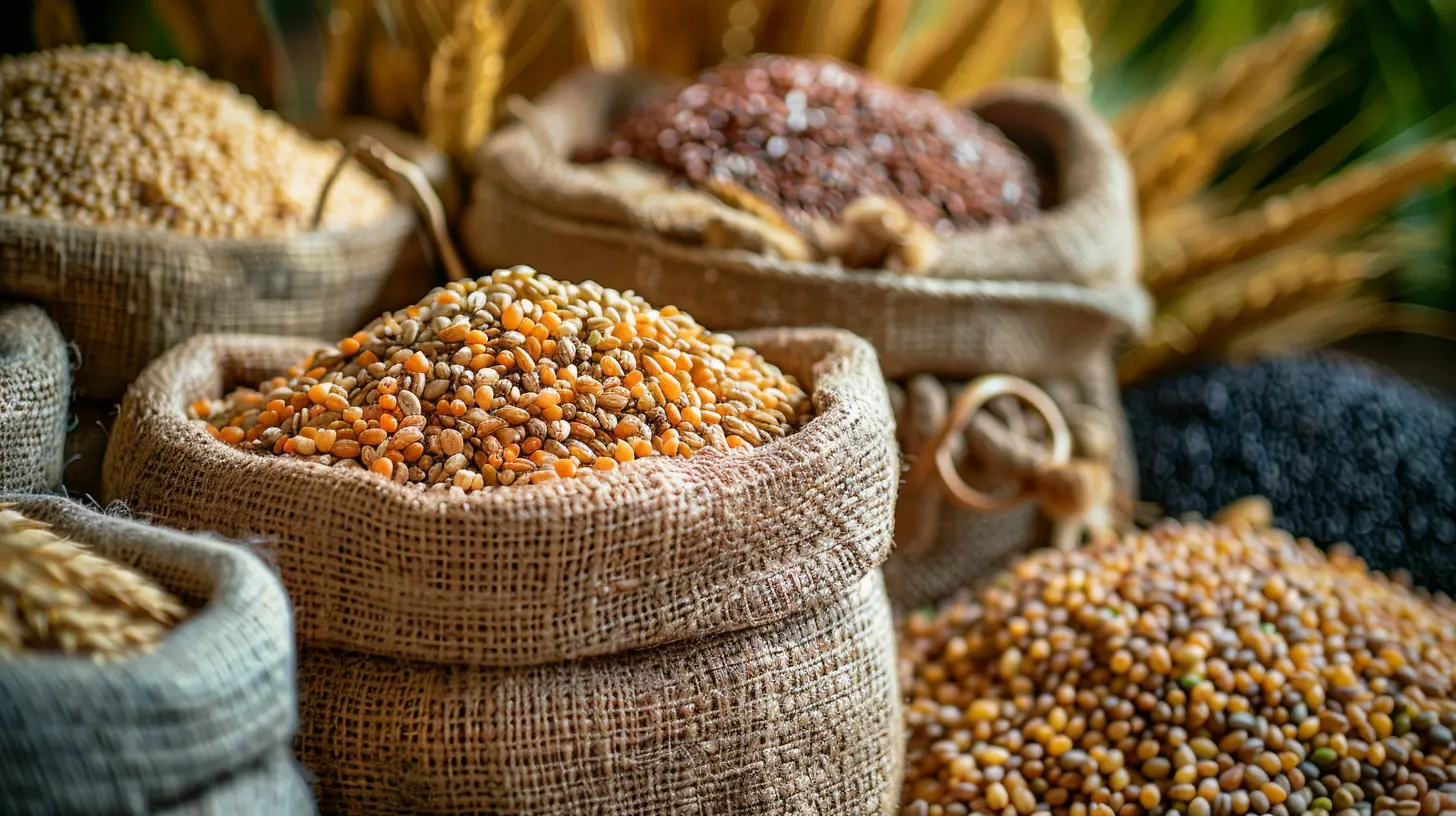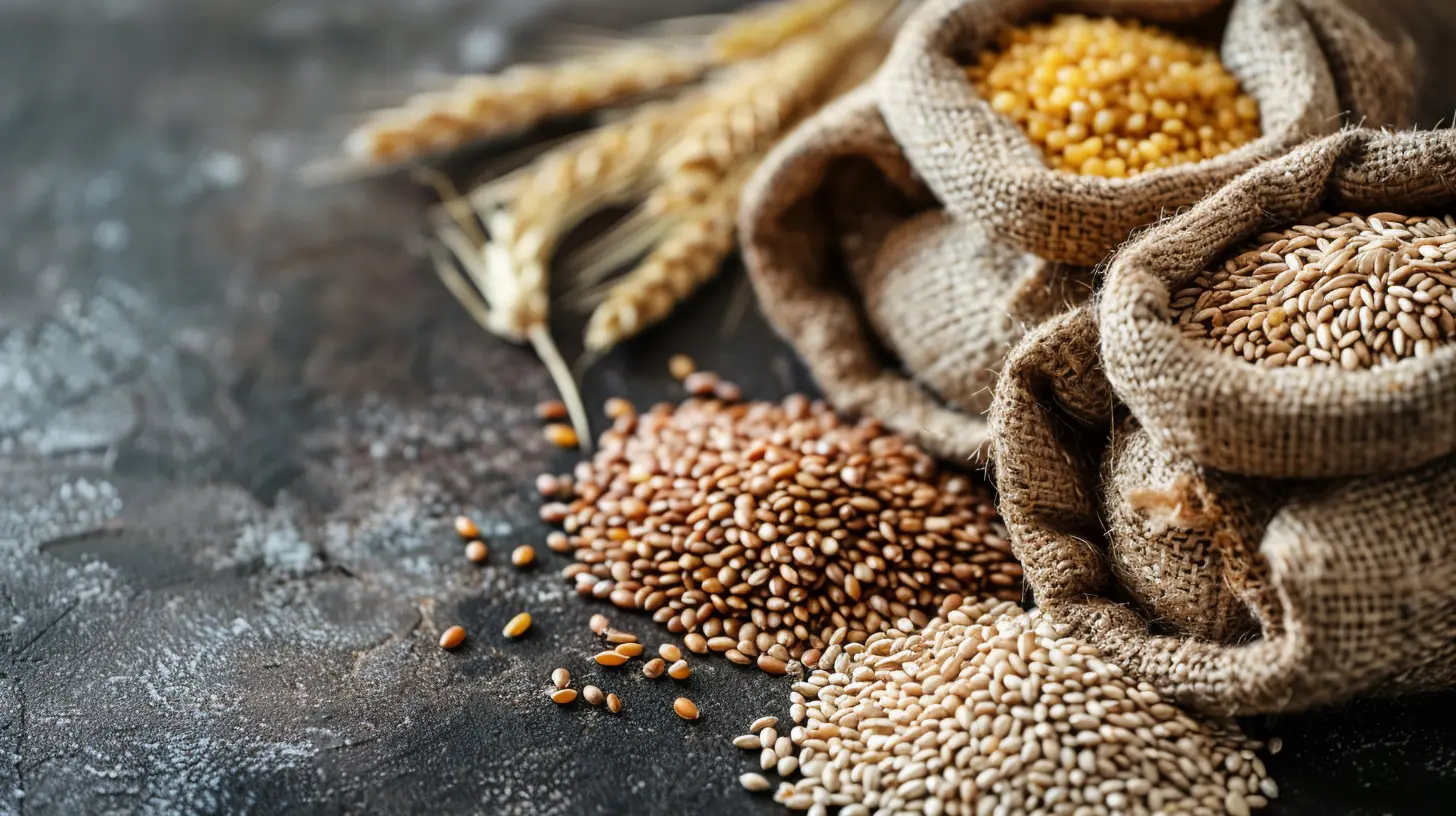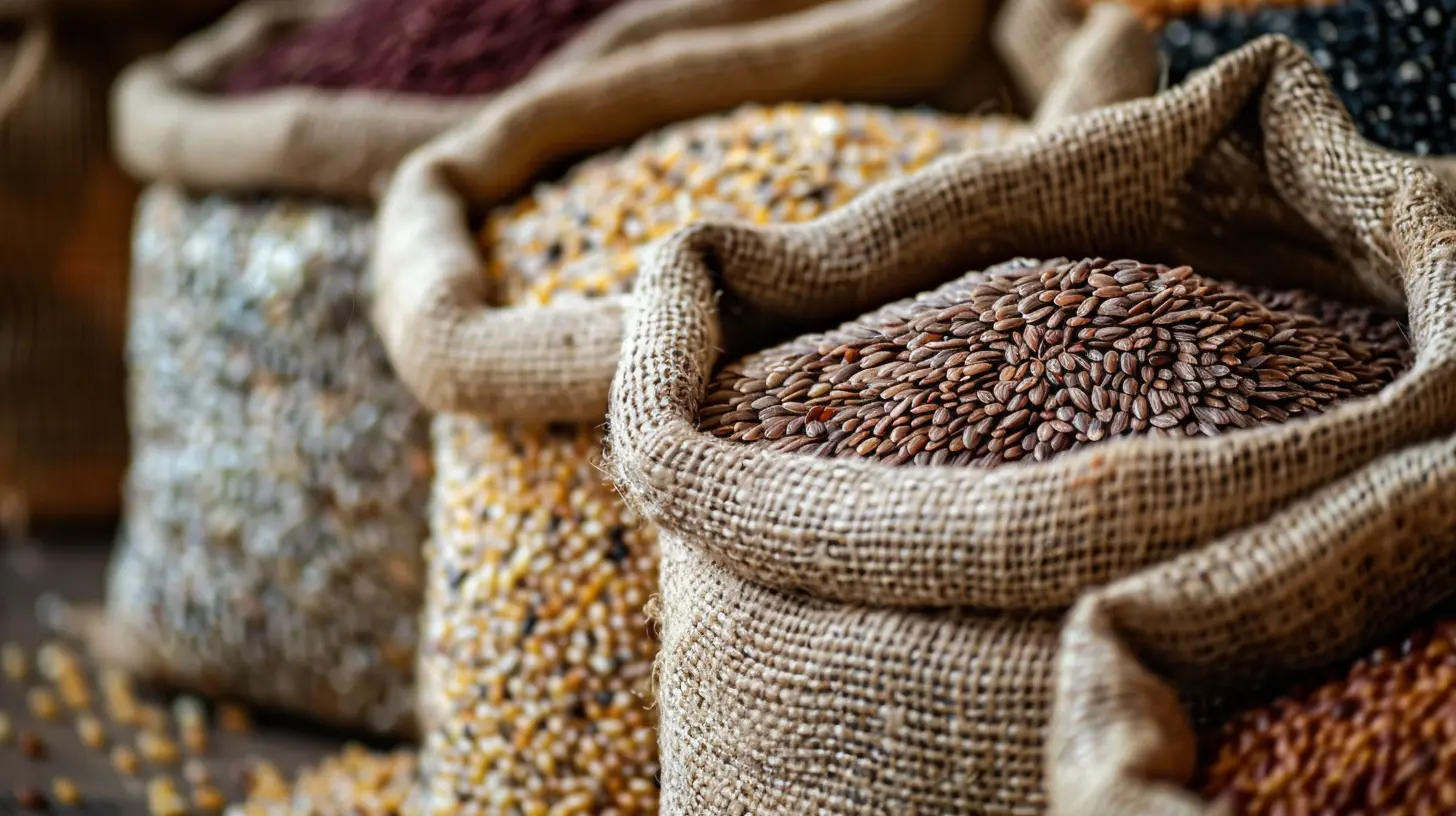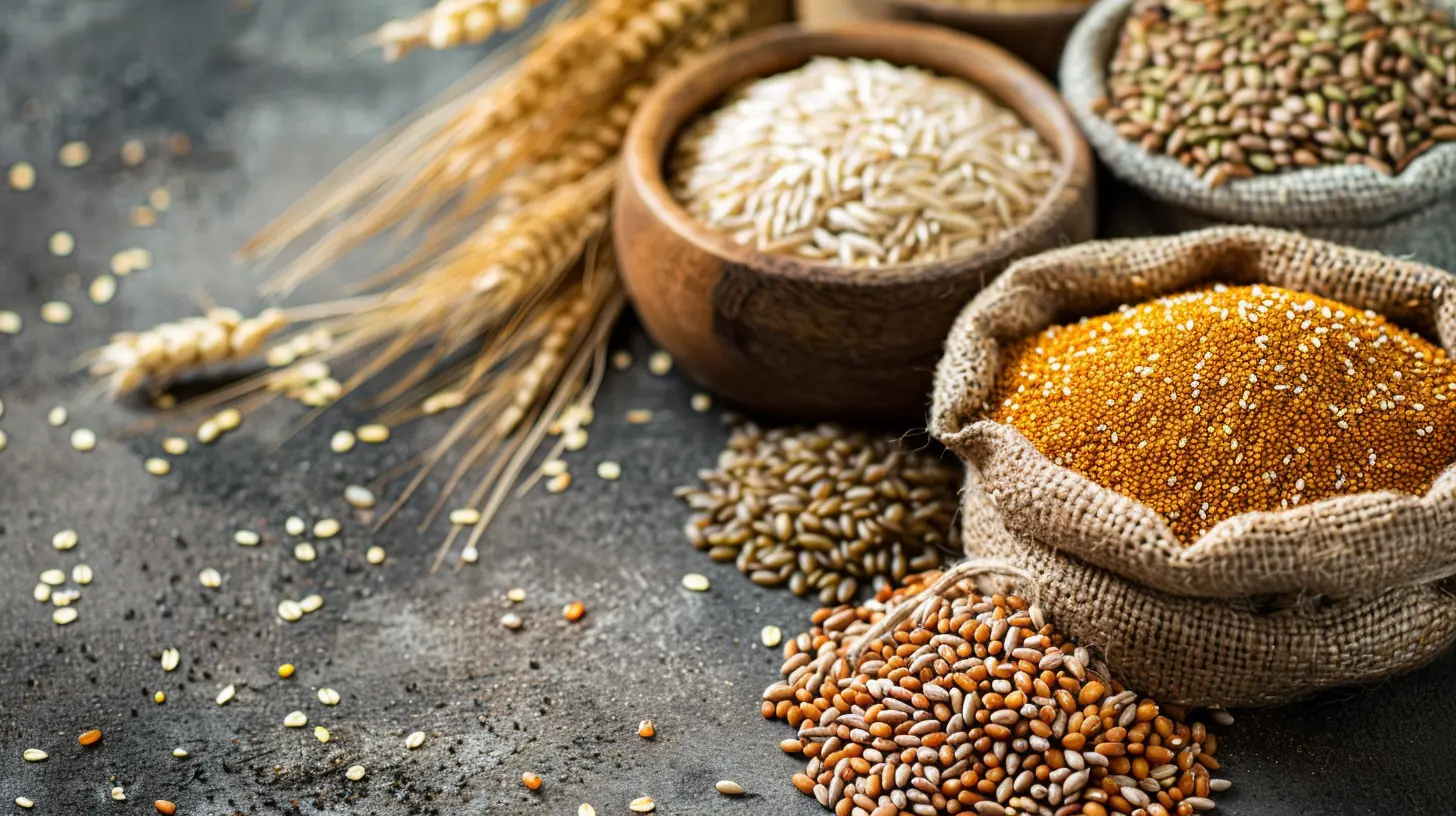Organic Grains: Are They Healthier for You?
23 April 2025
Alright, let’s cut through the noise. You’ve probably seen those fancy organic grain labels at the grocery store, right? They scream healthier choice, but is that really the case? Or is it just another overpriced trend making your wallet cry?
We’re about to dive in, break down the facts, and tell you whether organic grains are actually better for your health—or if you're just paying for a glorified sticker.

What Are Organic Grains Anyway?
Before we jump into the good, the bad, and the overhyped, let's get clear on what organic grains really are.Organic grains are grown without synthetic pesticides, herbicides, or genetically modified organisms (GMOs). They're cultivated using natural fertilizers and good ol’ farming techniques that have been around for centuries.
Organic farming follows strict regulations that ensure:
- No synthetic fertilizers or pesticides
- No genetically modified seeds
- No irradiation or sewage sludge (yep, that’s a thing in conventional farming)
Sounds all wholesome and earthy, right? But does that actually make them healthier? Let’s dig in.

Nutritional Benefits: Do Organic Grains Pack More Punch?
More Nutrients, or Just Hype?
One of the biggest claims about organic grains is that they’re more nutritious than conventional grains. But do they really deliver extra vitamins, minerals, and antioxidants?According to research, organic grains can have higher levels of certain nutrients, especially antioxidants. That's because without synthetic pesticides, organic plants develop stronger natural defenses—resulting in more beneficial compounds for us.
Some studies suggest organic grains contain:
- Higher levels of phenolic acids & flavonoids (hello, antioxidants!)
- More omega-3 fatty acids (especially in organic whole grains)
- A better balance of essential minerals like magnesium and iron
But—is the difference huge? Not always. While organic grains can have a nutritional edge, it's not a game-changing boost.
Fewer Toxins, Fewer Worries
One massive win for organic grains? Fewer synthetic chemicals lurking in your food. Conventional grains are often treated with pesticides like glyphosate (yep, the same stuff linked to potential health risks).Even though pesticide residues in conventional grains are usually within "safe limits," why take the risk? Your body doesn’t need a side of toxins with its morning oatmeal.

Organic vs. Conventional Grains: The Real Health Impact
Digestive Health: Your Gut Will Thank You
Organic whole grains aren’t just about fewer chemicals—they can also be easier on your gut. Since organic farming focuses on soil health, those grains tend to have a richer microbial profile.What does that mean for you? A healthier gut microbiome!
Your digestion thrives on beneficial bacteria, and organic grains might just help feed the good guys in your belly. Plus, since they’re grown without artificial chemicals, they could be gentler on sensitive stomachs.
Fewer Additives, Cleaner Eating
Another reason to give organic grains a standing ovation—they typically contain fewer additives and preservatives. If you’re all about clean eating, organic grains are the way to go.Many conventional grain products (think cereals and bread) sneak in artificial preservatives, flavor enhancers, and other unwanted junk. Organic options? Much less of that nonsense.

The Environmental Factor: A Win for the Planet
Health isn’t just about you—it’s about the planet too. And guess what? Organic grains are better for the earth in a big way.Here’s why:
- Healthier Soil – Organic farming boosts soil fertility and prevents erosion.
- Less Water Pollution – No synthetic pesticides = cleaner water sources.
- Protecting Pollinators – Bees and other pollinators love organic farms. Conventional pesticides? Not so much.
When you choose organic, you’re not just making a choice for your health—you’re casting a vote for a more sustainable planet.
The Price Tag: Is Organic Worth the Extra Cash?
Let’s be real—organic grains aren’t cheap. A bag of organic quinoa or brown rice can cost nearly double its conventional counterpart. So, is it worth the splurge?It depends on your priorities.
- If avoiding pesticides and additives is your top concern, organic is a smart choice.
- If you’re buying whole grains and cooking from scratch, the price difference may be minimal over time.
- If you're just looking for basic nutrition, conventional whole grains still offer great benefits.
One money-saving tip? Buy in bulk! Organic grains like oats, rice, and quinoa can be way cheaper when bought in larger quantities.
How to Incorporate Organic Grains Into Your Diet
Ready to give organic grains a shot? Here are some easy ways to add them to your meals:- Swap white rice for organic brown rice or quinoa.
- Choose organic oats for your morning oatmeal.
- Go for organic whole grain bread instead of processed white bread.
- Use organic whole wheat flour for baking instead of refined flour.
- Add organic farro or bulgur to salads for a fiber boost.
Small swaps can make a big difference—both for your health and the environment.
The Verdict: Should You Go Organic?
So, are organic grains really healthier for you? The short answer: Yes, but it depends on what you value.If you're looking for:
✅ Fewer pesticides & additives – Organic grains are the clear winner.
✅ Better gut health & digestion – They might give your microbiome a boost.
✅ A more eco-friendly choice – Organic farming is better for the planet.
✅ A slight nutrition boost – Some organic grains have more antioxidants.
But if you’re on a tight budget, don’t stress too much. Conventional whole grains (like brown rice, oats, and whole wheat bread) are still way better than highly processed grains.
At the end of the day, the best grains are the ones you’ll actually eat—and the ones that make you feel good. Whether that’s organic or conventional, the key is sticking to whole, minimally processed options.
Final Thought: Don’t Let Food Marketing Fool You
Organic grains come with benefits, but don’t fall for all the hype. Just because something is labeled “organic” doesn’t automatically mean it’s the healthiest option. A sugary organic cereal? Still junk. Organic white bread? Not much better than regular white bread.Focus on whole grains, ingredient quality, and what works for your lifestyle. And if you can afford organic? Even better.
Now, go enjoy that bowl of organic oatmeal like the health-savvy rockstar you are.
all images in this post were generated using AI tools
Category:
Organic FoodsAuthor:

Tiffany Foster
Discussion
rate this article
4 comments
Jack Myers
Great article! I’ve always wondered about the benefits of organic grains. It’s so refreshing to see the latest research laid out so clearly. I appreciate how you highlight both the health aspects and the environmental impact. Keep up the great work!
April 30, 2025 at 3:00 AM

Tiffany Foster
Thank you for your kind words! I'm glad you found the article informative. Your support means a lot!
Sarina Bass
Great article! It's crucial to consider both nutritional content and environmental impact when choosing grains. Exploring organic options can be beneficial, but balance is key for overall health.
April 29, 2025 at 4:02 AM

Tiffany Foster
Thank you for your thoughtful comment! I completely agree that balancing nutrition and environmental considerations is essential when choosing grains. Exploring organic options can certainly contribute to a healthier lifestyle.
Astraea McLaury
Consider nutritional benefits and environmental impacts equally.
April 28, 2025 at 2:39 AM

Tiffany Foster
Thank you for your insightful comment! Balancing nutritional benefits with environmental impacts is crucial in evaluating organic grains. Both aspects contribute significantly to our overall well-being and sustainability.
Aurelia O'Neal
Thank you for this insightful article! It's important to consider the benefits of organic grains, not just for health, but also for sustainable farming practices. Great read!
April 27, 2025 at 2:22 AM

Tiffany Foster
Thank you for your kind words! I'm glad you found the article insightful and appreciate your emphasis on sustainability.



